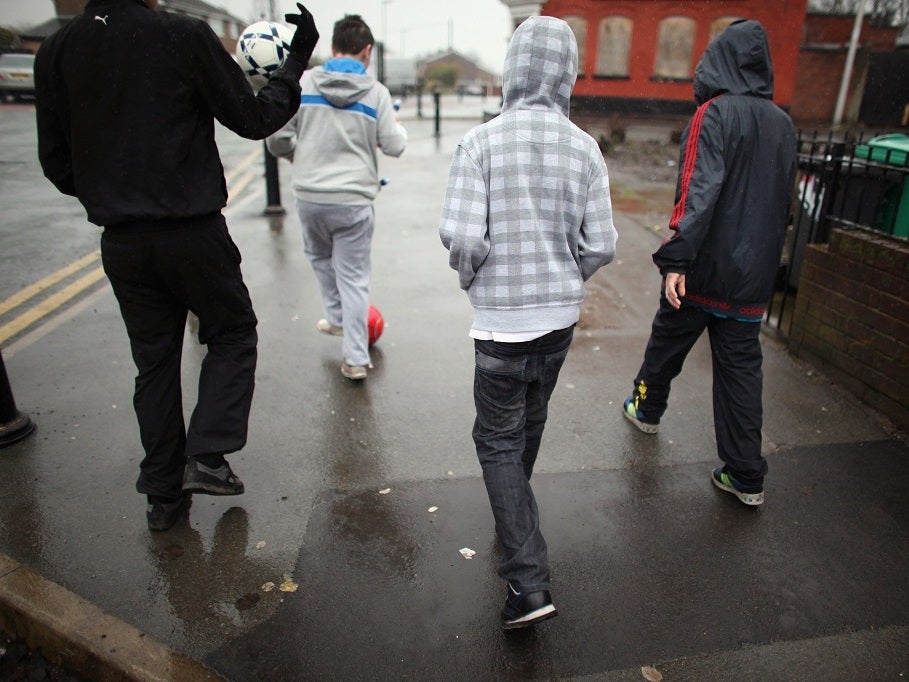This week's big questions: Will people learn to cope with austerity? Is there too much panic over child sex abuse?
This week's questions answered by the founder of Kids Company and the Place2Be

Your support helps us to tell the story
From reproductive rights to climate change to Big Tech, The Independent is on the ground when the story is developing. Whether it's investigating the financials of Elon Musk's pro-Trump PAC or producing our latest documentary, 'The A Word', which shines a light on the American women fighting for reproductive rights, we know how important it is to parse out the facts from the messaging.
At such a critical moment in US history, we need reporters on the ground. Your donation allows us to keep sending journalists to speak to both sides of the story.
The Independent is trusted by Americans across the entire political spectrum. And unlike many other quality news outlets, we choose not to lock Americans out of our reporting and analysis with paywalls. We believe quality journalism should be available to everyone, paid for by those who can afford it.
Your support makes all the difference.Is George Osborne’s deficit-cutting a necessary evil – the pain we must endure to ensure longer-term hope of a future for the next generation?
In a climate of economic tension, the most vulnerable require more care. In the long run, they will end up costing more as their unmet needs will generate crises. My understanding is that the entire value of cuts in children’s social care is equivalent to the amount required to build speed bumps in a year; now, wouldn’t it be wiser to refrain from building those spine-chilling bumps and instead prevent further depletion in the lives of children who are already surviving childhood in Britain?
Will struggling individuals learn to cope with austerity?
Do they have a choice? The question suggests there is a skills deficit in the management of poverty. Hunger aches; you freeze without a winter coat. A third of the children coming to our street-level centres are sleeping on the floor; 18 per cent don’t have underpants; 33 per cent don’t have a bed. Homeless kids work out clever ways of helping each other, like putting one friend in a suitcase, carrying her past the receptionist at the hostel so that she can sleep the night on the floor of their room; they will all get evicted if she is found. You can call it what you want – learning to cope, or survival.
What is the impact when ministers praise “hard-working families” but demonise anyone without a 9-5?
Can you imagine the assault on your dignity? There aren’t enough jobs for the unemployed; they are already socially and economically challenged as a result of not being able to work. On top of this, very subtly, they are depicted as “lazy” and “greedy” because they may have to collect benefits. Piece by piece, you are shoved into the margins of society, not only isolated by a lack of a work environment but also by the derogatory discourse that is used to describe you.
Could welfare reform be “positive” for disabled people, as Esther McVey, the minister, claims?
I have heard the minister refer to the new “fitness to work” tests as “positive”, but I have yet to grasp how they are going to benefit sick or disabled people. Perhaps disabled people should be the individuals who test “fitness to work” – they might have a better understanding of strength and difficulty and greater sensitivity in presenting issues.
We’ve got through 2012 without riots. Is it something to celebrate?
I believe there will be riots again, as none of the social issues which generated them has been addressed. It is a smokescreen to describe them as “manifestations of mass greed” or a “shopping orgy”. The primary driver of the riots was a sense of people feeling profoundly discarded by society.
Does the media exaggerate the risks children face from sexual predators?
If anything, the media underestimates it. Come to the ghettos of British cities where thousands of children are being assaulted in street gangs. We have generated so much violence and perversion around children that now children are assaulting each other. It’s a sad fact that, in Britain, 12-year-olds are engaged in prostitution.
Nurses are to be given training in compassion. But is it something that can be taught? Do we all need lessons in it?
Most people who go into the care professions aspire to do good. Sustaining a compassionate attitude is possible only if the care-giver believes they can actually help to transform depleted conditions. When the ability to deliver change is frustrated, the care-giver becomes despondent and the recipient is disappointed. The compassionate exchange is made rotten. Repeated failures make carers feel ashamed as they experience a discrepancy between their aspiration to do good and poor delivery. Our nurses are not supported enough and work in a conveyor-belt culture which does not prioritise tenderness. Compassion cannot be taught; it is a personal journey. Like a domino, when the nurse is taken care of he/she passes on the caring to the patient. When the nurse is forced into survival mode through stress, the patient is perceived as a burden. So if we want compassion in our hospitals, we need to generate it through tenderness, not by putting a cheap poster on the wall.
Is changing the royal succession to allow a first-born female to succeed to the throne a progressive, or relevant step?
With apologies to Her Majesty the Queen, one must address all genital eventualities when it comes to royal succession!
Camila Batmanghelidjh is director of Kids Company. The charity will host an event for 3,500 vulnerable children this Christmas and more information can be found at www.facebook.com/kidscompany. To donate, email christmas@kidsco.co.ukr or text KIDS HELP to 70700 to make a £5 donation.
Join our commenting forum
Join thought-provoking conversations, follow other Independent readers and see their replies
Comments